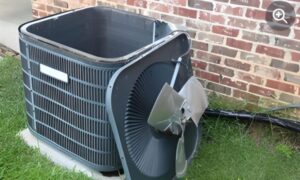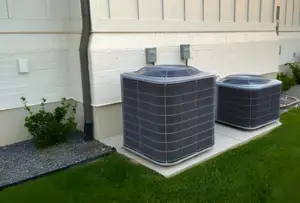Water conservation is a pressing concern in today’s world, with individuals and households seeking ways to minimize their environmental impact. While many may focus on reducing water usage in areas such as bathing or irrigation, one often overlooked aspect is dishwashing.
Traditional handwashing methods can be wasteful, using excessive amounts of water that could be put to more efficient use. However, there is a solution that is quietly revolutionizing this daily chore: water-saving dishwashers.
These innovative appliances are designed to significantly reduce water consumption while still ensuring sparkling clean dishes. But what is the surprising secret behind their water-saving prowess? Stay tuned to uncover the answer and discover the impact these revolutionary dishwashers can have on water conservation efforts.
Water Usage Comparison
When comparing water usage, it is evident that using a dishwasher is significantly more water-efficient than handwashing dishes. Modern dishwashers utilize water saving technologies and water conservation methods to minimize water consumption. A typical dishwasher uses about 3-4 gallons of water per load, whereas handwashing the same amount of dishes can consume up to 27 gallons.
By running a dishwasher every night instead of handwashing dishes, one can save approximately 24 gallons of water per load. This translates to over 100 gallons of water saved per week and more than 5,000 gallons saved per year. Energy Star-certified dishwashers are particularly efficient, using less than four gallons of water in an entire cycle, resulting in 80% less water usage compared to handwashing. By utilizing a dishwasher, households can save significant amounts of water and contribute to water conservation efforts.
Benefits of Using a Dishwasher
Using a dishwasher offers numerous benefits, including water and energy savings, convenience, and effective cleaning. Dishwashers are designed to be highly efficient, using significantly less water compared to handwashing. Modern dishwashers use about 3-4 gallons of water, whereas handwashing the same amount of dishes can use up to 27 gallons of water. Energy Star-certified dishwashers can save over 75% in energy and water costs for a family of four, resulting in substantial cost savings.
In fact, using a dishwasher instead of handwashing can save over $100 per year on utility bills and approximately $1,300 over the lifetime of the dishwasher. Energy-efficient dishwashers with improved sensors and water filtration can save up to 5,000 gallons of water per year, making them a responsible choice for both cost savings and energy efficiency.
Efficiency of Dishwashers
Dishwashers have proven to be highly efficient appliances, not only in terms of water and energy savings but also in providing effective cleaning and convenience. Thanks to improvements in dishwasher technology, these appliances have had a significant impact on water conservation.
Modern dishwashers use approximately 3-4 gallons of water per load, compared to the 27 gallons used when washing the same amount of dishes by hand. Energy Star-certified dishwashers, in particular, use less than four gallons of water in an entire cycle, resulting in 80% less water usage compared to handwashing.
These dishwashers are equipped with sensors that adjust water usage based on the load size, providing optimal efficiency. By using a dishwasher instead of handwashing, households can save over 5,000 gallons of water per year, making them an essential tool in water conservation efforts.
Inefficiency of Handwashing
Handwashing dishes is often an inefficient and ineffective method of cleaning, leading to unnecessary water waste and higher water consumption compared to using a dishwasher. Many people have misconceptions about the water-saving potential of handwashing, believing that running a partially loaded dishwasher or handwashing a few dishes is more water-efficient.
However, research shows that running a dishwasher with a partial load, using only 3-4 gallons of water, actually saves more water than handwashing a few dishes, which can use up to 27 gallons of water. To reduce water usage during handwashing, it is recommended to use an aerator faucet and avoid keeping the water running. By adopting these water-saving tips and debunking common misconceptions, individuals can contribute to water conservation efforts and reduce their environmental impact.
Factors Affecting Dishwasher Water Usage
Factors that influence the amount of water used by a dishwasher include the selected cycle, the age of the dishwasher, the quantity and cleanliness of the dishes, and the efficiency of the spray arm. The dishwasher cycle selection plays a crucial role in determining water usage. Different cycles, such as heavy, normal, or eco-friendly, have varying water requirements.
Newer dishwashers often have more advanced features that allow for more efficient water usage. Older models tend to use more water, as they may lack the technological advancements found in newer models. Additionally, the quantity and cleanliness of the dishes can affect water usage, as more dishes or dirtier dishes may require more water for effective cleaning.
The efficiency of the spray arm also plays a role, as a well-functioning spray arm ensures proper water distribution and coverage. Some dishwashers are equipped with soil sensors that optimize water consumption by adjusting the cycle based on the level of dirtiness. By considering these factors, consumers can choose a dishwasher that maximizes water efficiency and minimizes waste.
Environmental Impact of Dishwashers
The environmental impact of dishwasher usage extends beyond water conservation and includes considerations such as carbon emissions and the production and disposal of dishwashers. Dishwashers contribute to water scarcity by wasting excessive amounts of water during their operation. However, the water savings achieved by using efficient dishwashers far outweigh the initial water consumption.
Furthermore, dishwashers also have an impact on carbon emissions due to the energy consumed during their operation. Energy Star-certified dishwashers are designed to minimize energy usage, resulting in reduced carbon emissions. Additionally, the production and disposal of dishwashers can have environmental consequences, such as resource depletion and waste generation. To mitigate these impacts, it is crucial to choose energy-efficient dishwashers and properly dispose of old appliances through recycling programs.
By considering these factors, individuals can make more environmentally conscious choices when it comes to using dishwashers.
Conclusion
In summary, choosing a water-saving dishwasher is not only a practical and convenient solution for cleaning dishes, but it also significantly reduces water and energy consumption, resulting in both environmental and financial benefits.
Energy efficient dishwashers, particularly those with Energy Star certification, offer numerous advantages. They use less water, with some models using less than four gallons of water in an entire cycle, resulting in an 80% reduction compared to handwashing. By upgrading to an energy efficient dishwasher, families can save over 5,000 gallons of water per year.
Additionally, using a dishwasher instead of handwashing can lead to substantial cost savings. Families can save over $100 per year on utility bills and approximately $1,300 over the lifetime of the dishwasher. In conclusion, investing in a water-saving dishwasher offers both environmental and financial benefits, making it a wise choice for any household.








